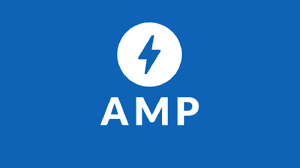
Well to put it in an entirely simplistic and non-technical manner, they are pages that are made using a set of rules that make the page lighter and faster to load for mobile platforms. For a far more thorough description, you could visit the AMP Project’s own website which features the full details about the required AMP HTML, AMP JS and the Google AMP cache.
However, for those of you who are looking to find out what accelerated mobile pages are and if your website needs them, then that will likely be going in at the deep end.
So do you need to adapt to AMP to make your site more competitive? Well, the answer appears to be not at the moment, unless you are a larger content/ news portal. In the image of the left below, you can see an example of accelerated mobile pages being listed on Google.co.uk on the 11th of May 2016.
Note the AMP logo and the time of publishing under the snippet. You may also notice that the publishers included are the Guardian and Mashable, but there were snippets from the BBC, Yahoo and The Wall Street Journal.
All of the above are blessed with the budgets to test the new formats and the clout to have their content selected. The reason why budget may play a role is not just because it’s a new set of regulations to code to but that there also has to be a traditional style page in existence for serving on the none mobile versions of the search engine. This means that site sizes will continue to grow at the demand of the SERPs.
Another interesting thing to note in the image above is that the search on the right for “UK industry news” has no AMP results. This is despite the news being heavily focused on UK Industry returning to recession. While this is one example and as such ultimate conclusions cannot be drawn, it would appear that not even all major news stories are warranted with Accelerated Mobile Page results.
Perhaps the outlets opt to invest in using the AMP protocol for news stories that they deem to be more clickable. Maybe only time will tell. To bring this back to your website, whether service or product based, it is unlikely that there is an immediate requirement unless you are creating highly relevant and fresh content for topics that may generate significant interest.
Google is clearly testing versions of the knowledge graph and various snippets within the SERPs; this position is also likely to change.
To find out more about the latest Digital marketing and SEO news and how we can help your online business grow, contact the team.



